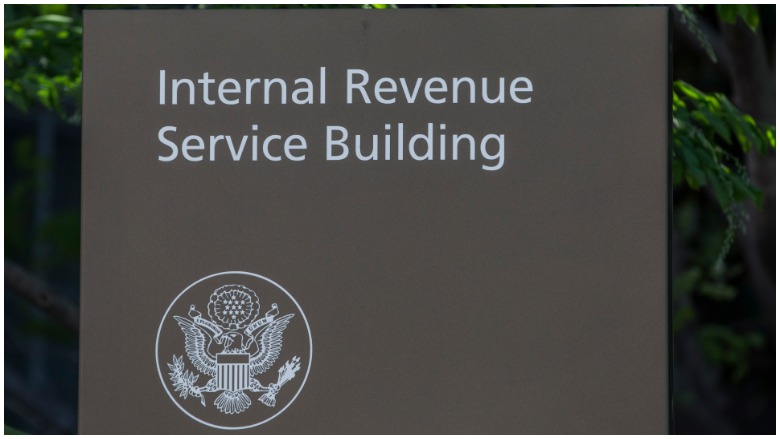
Getty The Internal Revenue Service (IRS) made the announcement September 8.
The Internal Revenue Service (IRS) announced that on September 24, it would begin mailing about nine million letters to Americans who have not submitted their tax information yet and therefore, have not received a stimulus check.
The deadline for non-filers to register with the IRS to potentially receive a stimulus check is October 15.
Receiving a Letter from the IRS Won’t Guarantee a Check
According to the IRS press release, the agency is sending letters called “IRS Notice 1444-A,” which will come in English and Spanish with eligibility information and how to register if you qualify for a payment.
IRS Commissioner Chuck Rettig said that he wants the remaining people who are eligible to receive a stimulus payment to fill out the necessary forms that will make it possible. The list of nine million is generated based on what the IRS described as “internal analysis (of) … people who don’t typically have a tax return filing requirement because they appear to have very low incomes.”
“We are taking this extra step to help Americans who may not know they could be eligible for this payment or don’t know how to register for one,” Rettig said. “People who aren’t required to file a tax return can quickly register on IRS.gov and still get their money this year.”
Rettig also pointed out that people can check their eligibility at any time before the October 15 deadline. “Time is running out this year for the IRS to issue payments,” he said. “People who normally don’t file a tax return shouldn’t wait to see if they receive one of these letters. They can review the guidelines and register now if they’re eligible.”
- Here is a link to the non-filers tool
- Here is a link to a copy of the letter that the IRS is mailing out
- Here is a link to the IRS’ eligibility requirements for stimulus checks
- Here is a link to the IRS’ frequently asked questions about stimulus checks, formally called Economic Impact Payments
The IRS noted that receiving a letter does not automatically mean you will receive a stimulus check; you will still need to meet eligibility requirements and register online and fill out the non-filers tool.
Low-Income Americans Continue to Suffer Without a New Stimulus Bill
According to Pew Research, lower-income adults were the most likely group (52%) to report either losing a job or taking a pay cut as a result of the pandemic. Low-income Americans have also struggled to receive full benefits from coronavirus relief programs.
Under the CARES Act, the IRS failed to provide 450,000 low-income families with stimulus check payments that included their dependents according to a Government Accountability Office report. CNN reported that the Act also did not extend Supplemental Nutrition Assistance Program benefits, which has led food pantries to become overwhelmed with repeat and new clients, as The New York Times reported.
Many low-income Americans were also unable to benefit from the Lost Wages Assistance program, which provided an additional $300/week supplement to unemployment; one of the eligibility criteria for that program was that recipients had to make a minimum of $100 in unemployment benefits. According to a CNBC analysis of August 20 unemployment data, 5.5 million Americans would most likely be considered ineligible due to the requirement.
Now with a government shutdown temporarily avoided, many Americans are hoping that negotiations over a new stimulus bill will start up again.
READ NEXT: Stimulus Checks 2: How the National Debt Is Hampering Negotiations